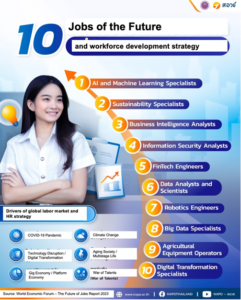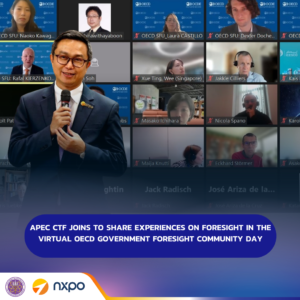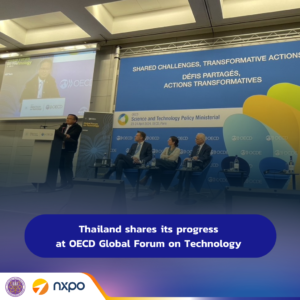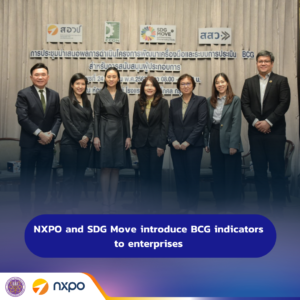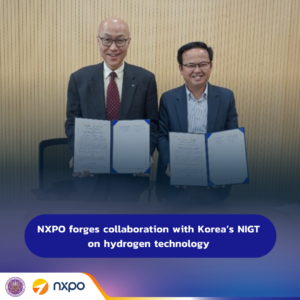The Department of Climate Change and Environment, in collaboration with over 20 public and private organizations and academic institutes, recently organized the Thailand Pavilion at the 2023 United Nations Climate Change Conference (COP28) held in Dubai, United Arab Emirates (UAE). As one of the co-organizers, NXPO organized the Innovation Zone and three side events within the Thailand Pavilion, showcasing initiatives undertaken by NXPO to reduce greenhouse gas emissions in Thailand.
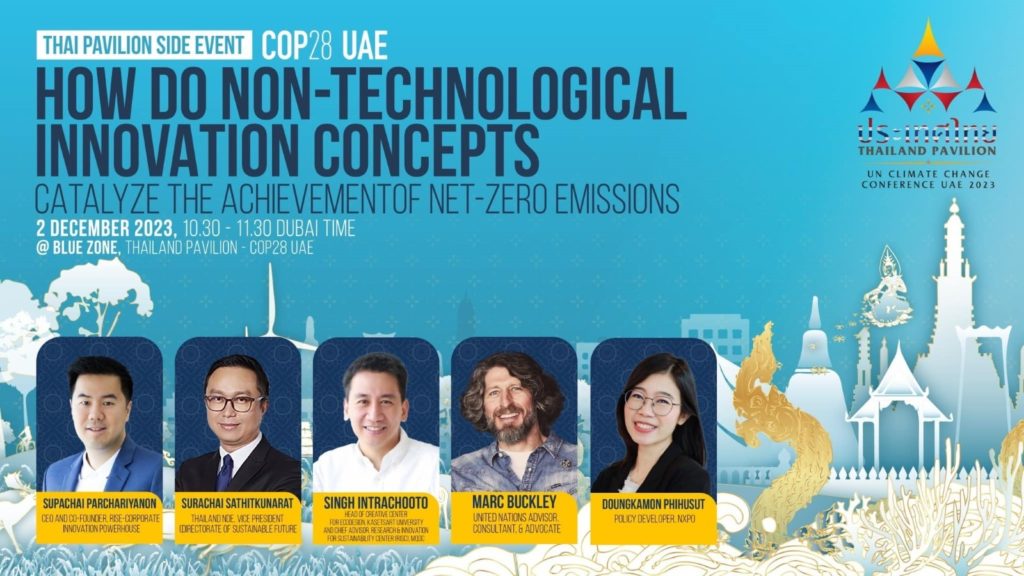
On 2 December 2023, NXPO Vice President Dr. Surachai Sathitkunarat and NXPO Policy Developer Dr. Doungkamon Phihusut served as panelists in a side-event seminar titled “How do non-technological innovation concepts catalyze the achievement of net-zero emissions?” They shared the stage with three other experts: Dr. Supachai Parchariyanon, Assoc. Prof. Dr. Singh Intrachooto, and Prof. Marc Buckley.
During his presentation, Dr. Surachai discussed non-technological innovation concepts employed by NXPO to drive the net-zero goal through the implementation of the Bio-Circular-Green Economy (BCG) model. In one project, NXPO raised awareness of the BCG model among 1,000 micro, small and medium-sized enterprises in Thailand. In partnership with SDG Move, the project also designed BCG indicators as a tool for enterprises to access green finance, enabling them to compete in the global market and achieve business sustainability.
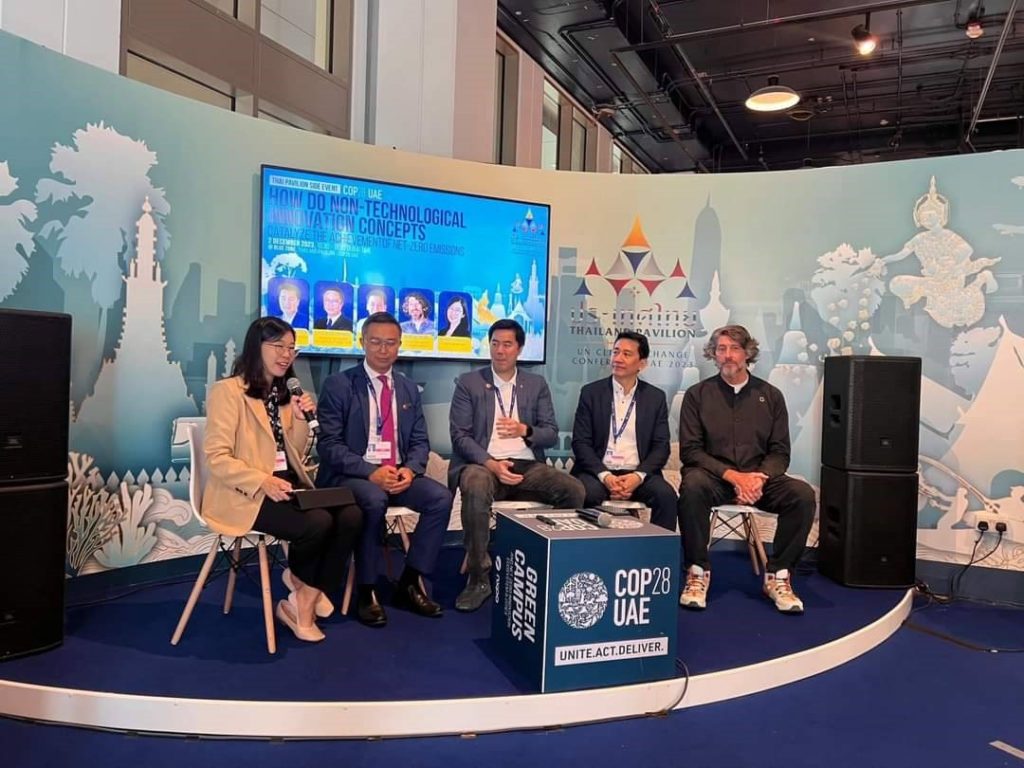
Dr. Supachai Parchariyanon emphasized leadership transformation, highlighting that the shift in perception of net-zero emissions from burden to opportunity enables companies to discover new business opportunities. He also introduced SeaX Zero, a venture capital fund that focuses on sustainability tech startups after its success with deeptech startups.
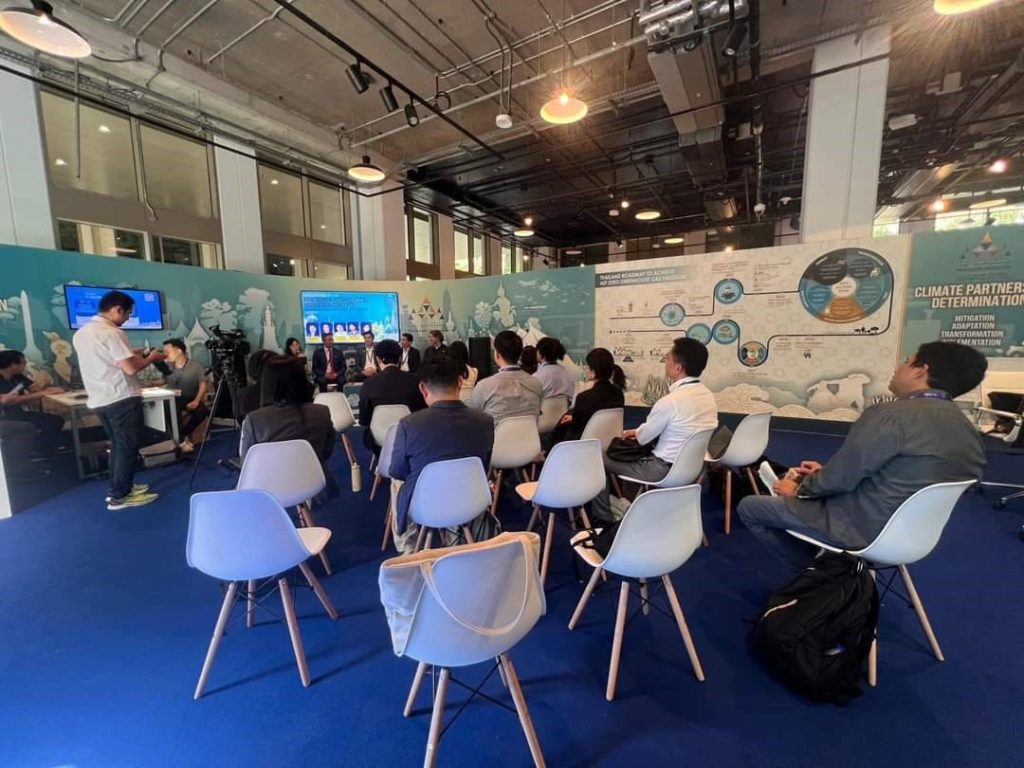
Assoc. Prof. Dr. Singh Intrachooto, Director of the Creative Center for Eco-design at Kasetsart University, presented the resilience framework as a tool for addressing climate change. The framework consists of three pillars: 1) Nature and Environment, 2) Living and Infrastructure, and 3.) Society and Economy. He also cited mobilizing behavior change in communities for green living as an example of non-technological innovation.
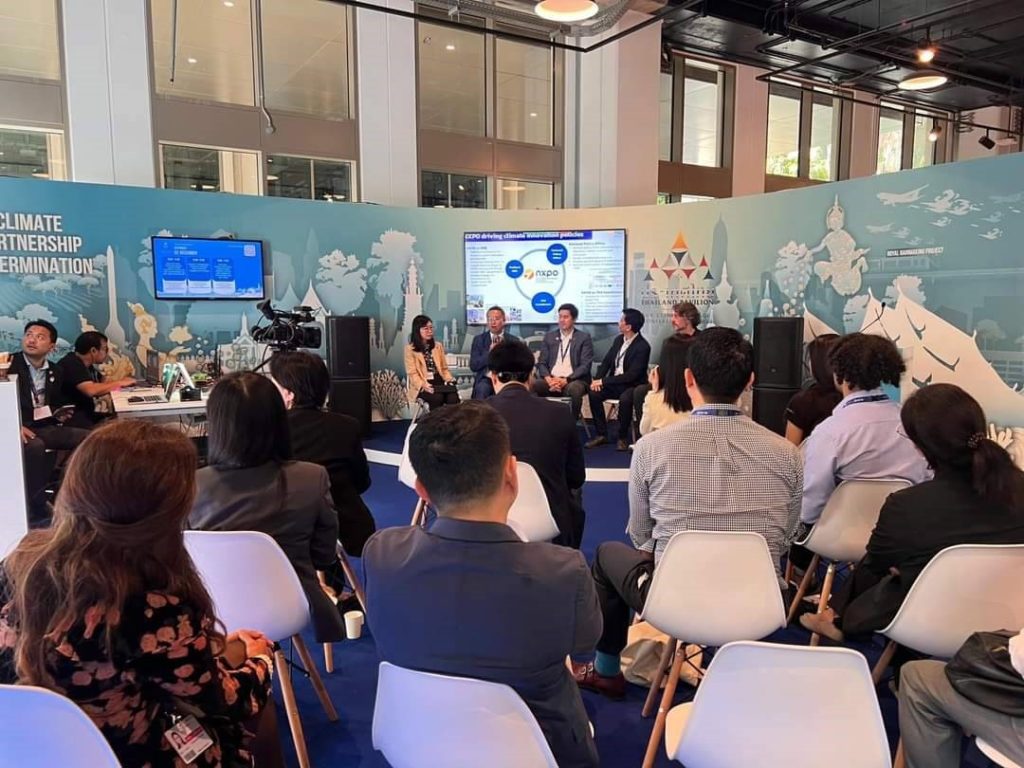
Prof. Marc Buckley, a foresight expert in climate change, shared a global movement to achieve the Symbiocene – an integration between humans and the rest of nature that will facilitate sustainable living – as an example of non-technological innovation. He underlined that Thailand possesses several strengths that will allow the country to develop its own sustainable path based on homegrown knowledge and innovation.
